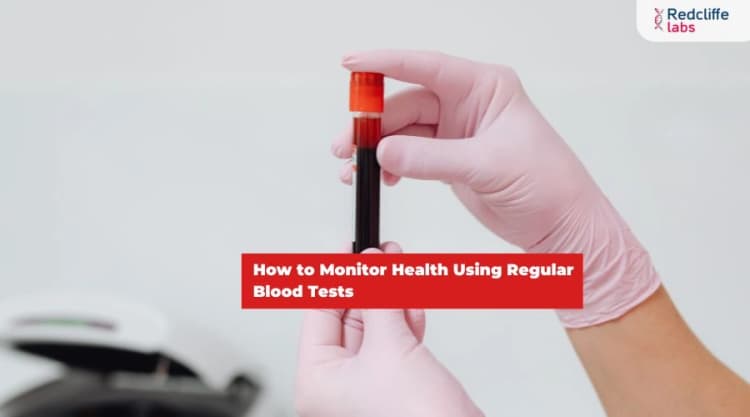Blood
Unlock special
discount on
this package
Login to Unlock 🔓
NABL Accredited lab*

Booking Benefits Unlocked Worth FREE 799

Report Consultation

Diet Plan
*Available once your report is generated.
At Redcliffe Labs, we have a single goal: to give India its right to quality diagnostics.
Customers served
Tests Processed Everyday
Cities
Collection Centres
World Class In-house Labs
Home Collection Experts
1 Test Parameters
Blood Urea Nitrogen (Bun)
1 PARAMETER INCLUDED
1 PARAMETER INCLUDED
- BUN
Top Booked Health Checkup Packages
Reports in 12 hours
|Parameters 94
Reports in 12 hours
|Parameters 89
Reports in 12 hours
|Parameters 96
Reports in 12 hours
|Parameters 96
Reports in 12 hours
|Parameters 90
Helps you know your test better
Q. What is a blood urea test?
Q. What does a blood urea test measure?
Q. How do you prepare for a blood urea test?
Q. What is the blood urea test price ?
Verified by Medical Expert

WRITTEN BY
Sheena Mehta

MEDICALLY REVIEWED BY
Dr. Pradeep Lodha
Table of Content
Introduction to Blood Urea Nitrogen (BUN) Test
The Blood Urea Nitrogen (BUN) test is a blood test that measures the level of nitrogen in the form of urea in the blood. Urea is a waste product that forms when the liver breaks down proteins and is excreted from the body through the kidneys in the form of urine.
If you are experiencing any symptoms like nausea, changes in urination, loss of appetite, or shortness of breath, consult your doctor. Your healthcare provider may recommend a BUN test, which assesses kidney functionality and certain medical conditions. Elevated BUN levels may indicate kidney dysfunction, such as acute or chronic kidney disease. However, the cause of elevated levels of BUN may be dehydration, a high protein diet, and abnormal liver function. Healthcare providers may recommend the BUN test as part of routine health check-ups to detect early signs of kidney dysfunction before symptoms become apparent. Choose Redcliffe Labs for your BUN blood test to get affordable and accurate test reports on time.
Test Details in Brief
| Also Known As | Blood Urea Nitrogen (BUN) Test |
| Purpose | This measures urea nitrogen checks kidney functioning & helps diagnose & monitor kidney diseases. |
| Preparation | Do not take any over-the-counter medicine without confirming with your Doctor. |
| Fasting | 10-12 hours Fasting |
| Get Reports Within | Within 12 hrs |
| Cost | INR 149 |

Purpose of the BUN Blood Test
The Blood Urea Nitrogen (BUN) test helps serve various purposes. The primary purposes of the BUN blood test include:
- Assessing Kidney Function: The BUN test evaluates how well the kidneys function. It measures the urea nitrogen level in the blood, and an elevated BUN level may indicate impaired kidney function. It can help diagnose acute or chronic kidney diseases and monitor the progression of these conditions.
- Monitoring Kidney Disease: For people who already have kidney disease, the BUN test is used to monitor the progression of the condition and assess the effectiveness of treatment and interventions.
- Detecting Dehydration: Dehydration can increase BUN levels due to the concentration of urea in the bloodstream. The BUN test can help identify dehydration and guide proper treatment.
- Evaluating High-Protein Diets: High-protein diets can sometimes lead to high BUN levels, which do not necessarily indicate kidney problems. The BUN test can help healthcare providers assess the impact of dietary choices on BUN levels.
- Assisting in Diagnosis: Abnormal BUN levels can be a useful indicator in diagnosing various medical conditions, such as kidney disease, heart failure, urinary tract obstructions, gastrointestinal bleeding, and certain metabolic disorders.
- Assessing Liver Function: While the primary function of the BUN test is to evaluate kidney function, it can also provide some information about liver function, as the liver produces the proteins that break down into urea.
Abnormal BUN levels may have various potential health risks and causes, and additional tests and medical history considerations are often necessary to determine the specific condition responsible for the elevation.

What does the BUN test measure?
The bun test measures the amount of urea nitrogen in the blood. Urea is a waste product produced when the body breaks down proteins, and it is normally filtered out of the bloodstream by the kidneys and excreted in urine. The BUN test is used to assess how well the kidneys are functioning. A high BUN level can indicate that the kidneys are not effectively removing urea from the blood, which may be a sign of kidney disease, dehydration, or other health conditions. Conversely, a low BUN level can be associated with liver disease, malnutrition, or overhydration.
Preparation for the BUN Blood Test
Usually, the test does not require any special preparation, but there are certain guidelines you must follow before taking the BUN test.
- Fasting: You don't need to fast before a BUN test. You can generally eat and drink as you normally would before the test.
- Medications: Inform your healthcare provider about any medication you are taking, as some medications can affect the BUN levels.
- Hydration: Stay hydrated before the test. Dehydration can affect the BUN levels, so drink water as you usually would unless you've received specific instructions to restrict your fluid intake.
The procedure of the BUN Blood Test
The blood Urea Nitrogen (BUN) test is a common one, and the procedure is as simple as other blood tests. Here is the general procedure for the BUN test:
- Visit a nearby laboratory where the BUN test can be performed, or you may book your BUN blood test with Redcliffe Labs to get the sample collected from home.
- A healthcare professional or phlebotomist will perform the test. They will clean the arm area with an antiseptic solution and tie a tourniquet above it to make the veins more visible and easier to access.
- A needle will be inserted into a vein, and a small amount of blood will be drawn into a collection tube. You may feel a brief prick or sting during the needle insertion.
- After collecting the blood sample, the sample will be labeled with your name and sent to a laboratory for analysis.
What do the Blood Urea Nitrogen (BUN) Test reports indicate?
The blood Urea Nitrogen (BUN) test reports provide information about urea nitrogen concentration in your blood. Here is what your test reports indicate:
- Normal BUN Levels: The reference range for BUN levels can vary from one laboratory to another but typically falls within the range of 6 to 24 mg/dL (2.1 to 8.5 mmol/L ).
- High BUN Levels: The BUN blood test's high results may indicate conditions like kidney disease, dehydration, a high protein diet, and certain medications.
- Low BUN Levels: BUN blood test low may also be significant and may be associated with severe liver disease, malnutrition, and overhydration.
Your healthcare provider will consider your medical history, other test results, and any symptoms you may be experiencing when interpreting the BUN test results. Any significant abnormalities in BUN levels may prompt further investigation, potentially including additional blood tests and urine tests to determine the underlying cause and appropriate treatment if necessary.
Who should take the BUN Test?
The BUN blood test is recommended for various reasons:
- Kidney Function Monitoring
- Assessment of Dehydration
- Evaluation of Kidney Disease Symptoms
- Monitoring Medication Effects
- Assessment of Liver Function
- Assessment of Protein Intake
- Routine health checkup-Up
What are the common symptoms related to abnormal BUN?
Abnormal BUN levels, whether high or low levels, can be associated with various medical conditions. Here are some common symptoms related to conditions that can cause abnormal BUN levels:
Elevated BUN Levels (Hyperuricemia):
- Fatigue: People with kidney dysfunction or other conditions causing high BUN levels may experience fatigue and a general lack of energy.
- Edema (Swelling): Swelling in the ankles, legs, or other parts of the body can occur due to impaired kidney function.
- Changes in Urination: This might include increased frequency, decreased urine output, or changes in the color and consistency of urine.
- Nausea and Vomiting: Kidney problems may lead to a buildup of waste products in the blood, causing nausea and vomiting.
- Itchy Skin: Uremic pruritus, or itching, can be a symptom of kidney dysfunction and elevated BUN levels.
Decreased BUN Levels (Hypouremia):
- Weakness: Low BUN levels can be associated with malnutrition and protein deficiencies, leading to muscle weakness and fatigue.
- Edema (Swelling): Severe protein deficiency might cause fluid retention and swelling in the body.
- Nutritional Deficiencies: Inadequate protein intake can result in various dietary deficiencies, potentially leading to symptoms like hair loss, brittle nails, and poor wound healing.
- Mental Confusion: In severe cases of protein deficiency, individuals may experience cognitive symptoms such as confusion and difficulty concentrating.
- Gastrointestinal Symptoms: People with protein malnutrition might experience digestive problems, including diarrhea or weight loss.
Suppose you experience persistent or severe symptoms related to kidney function or nutritional concerns. In that case, seeking medical advice and taking a Blood urea test to diagnose and address the condition is important.
How to treat abnormal Blood urea nitrogen?
The treatment for abnormal BUN levels can be addressed:
- Diet and Fluid Management: Adjust your diet and fluid intake per your BUN levels. Reducing protein intake can lower BUN levels, although this should be done under a healthcare provider's or dietitian's guidance to avoid nutritional deficiencies.
- Medication Management: If the abnormal BUN levels are due to a specific medical condition or medications, consult your healthcare provider to manage the underlying issue.
- Kidney Supportive Measures: For kidney-related issues, measures to support kidney function, such as blood pressure management and maintaining a healthy lifestyle, are important.
- Nutritional Support: Nutritional Support is essential if hyperemia is related to malnutrition or inadequate protein intake. A dietitian can help create a balanced diet plan that includes sufficient protein.
- Regular health checkups: Regular monitoring of BUN levels is important to assess the effectiveness of treatment and ensure that levels return to the normal range.
BUN Blood Test Price at Redcliffe Labs
The blood urea test price at Redcliffe Labs is INR 149. The tests are available at affordable prices. Our Labs are NABL-accredited and ISO certified. We ensure to provide you with accurate test reports on time. Our team comprises skilled and experienced professionals well-versed in their respective fields. You need to visit our website and book your BUN test to avail yourself of the great discounts and offers. Book your BUN blood test today!
Other Related Tests/Packages That You can Book with Redcliffe Labs That Contain BUN Test
| Tests/Packages | Price in INR |
| Blood Urea Test | ₹129 |
| Kidney Function Test (KFT) | ₹399 (Price Depends on the Selected City) |
| Urinary Tract Infection Panel | ₹799 |
| Supersaver Vital Care Pack for 2 | ₹699 |
| Supersaver Diabetic Care Pro Pack for 2 | ₹1199 |
| Metabolic Panel Essential | ₹399 |
| Vital Screening Package - Lite | ₹399 |
Conclusion
A blood Urea Nitrogen test is helpful to provide insights into kidney function. At Redcliffe Labs, we are dedicated to making healthcare accessible and affordable. Our accredited and ISO-certified laboratories ensure the accuracy of your test results, allowing for timely and informed decisions regarding your health. We understand that convenience is key in healthcare, so we offer online booking options and prioritize quick turnaround times.
Trust in Redcliffe Labs for accurate results, professional care, and value-added services that cater to your health needs. Monitoring kidney function is crucial for the early detection and management of kidney-related issues and good health.
5 Simple Steps to Manage Your Health with Redcliffe Labs
Quick, Simple & Convenient; trusted care delivered to your doorstep.

Start Your Online Booking
Open the Redcliffe Labs website/app. Select the test or package and enter your details. Schedule the service for your preferred slot.

Live Tracking
Stay updated with real-time tracking for a smooth and timely home sample collection.

Sample Collection
Our certified experts ensure a smooth, hygienic, and fully compliant sample collection experience.

Doctor-Verified Smart Reports
Every report is clinically checked by expert doctors and shared with smart, actionable insights.

Your Health Journey Continues Post Reports
Consult with our expert medical team to get actionable insights to improve your health.
Nearby Labs(9)
Redcliffe Labs Noida

MC-5280
Redcliffe Collection Center
Redcliffe Collection Center
Redcliffe Collection Center
Redcliffe Collection Center
Redcliffe Collection Center
Redcliffe Collection Center
Redcliffe Collection Center
Redcliffe Collection Center
Frequently Asked Questions
What is the blood urea test price?
What is the BUN test for?
What does a high BUN level mean?
What is the normal kidney BUN level?
What does it mean if BUN is high or low?
What are two symptoms of high BUN?
How do you reduce a BUN?
Can I book a Blood Urea Nitrogen (BUN) Test near me?
Can I book a home collection for a Blood Urea Nitrogen (BUN) Test?
Health Articles & Blogs
My Health
Stay informed with our expert health articles and blogs. Explore comprehensive guides on diseases, nutrition, preventive care, and wellness tips to help you make better health decisions.
Capsicum (Shimla Mirch) 101: Benefits, Nutritional Value, Uses and More

Normal Calcium Levels: Range, Symptoms & Causes of Imbalance

Home Remedies to Get Rid of Cold in Babies: Safe & Natural Relief for Infants
Discover safe home remedies to get rid of cold in babies. Learn natural and gentle relief methods to ease cough, congestion, and cold symptoms in infants.

How Often Should You Get a Full Body Health Checkup?

Understanding BUN Test Normal Range & Results: High, Low & Normal
Understanding BUN test normal range and results helps evaluate kidney health. Learn what high, low, and normal BUN levels mean and when to get tested.

What Level of Lymphocytes Is Dangerous?

How to Monitor Health Using Regular Blood Tests?

টাইফয়েড কি বাহিত রোগ? – জানুন সবকিছু
Explore My Health

